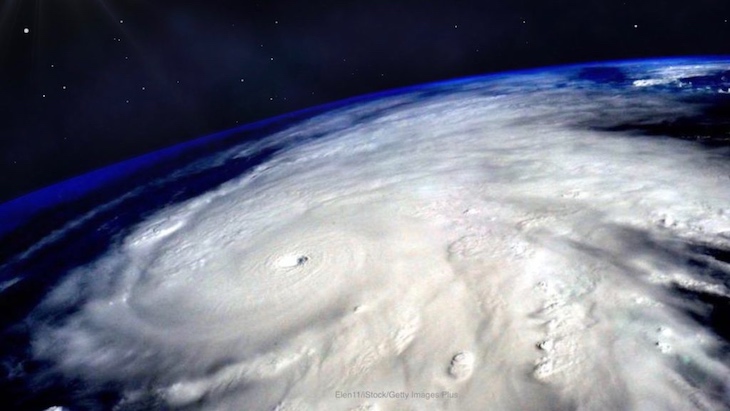FightBac food safety tips for hurricane season have been released as Hurricane Ian approaches the southeastern United States, more specifically the west coast of Florida. Hurricanes can cause floods and power outages that can make food unsafe to eat and water unsafe to drink. These tips will help protect your family and pets from foodborne illness during and after a hurricane and other storms.

It’s important to prepare before the storm if you can. After you have finished securing your home and property, if you are riding out the storm, purchase and store food and water for your household in case the food supply is disrupted.
Every person and pet should have at least one gallon of fresh potable water every day. For food, purchase non-perishable foods that have a long shelf life. Don’t neglect pet food and make sure that infants have food and that anyone in your household on a special diet is covered.
To reduce the use of water for cleaning, stock up on plastic utensils as well as cups, paper plates and bowls, and towels. Purchase charcoal or propane for your grill. (Remember to never use a grill indoors, in a garage, or even under a covered porch.)
Store food and water up high to keep it safe in case your home floods. Foods and beverages, including water, that are not in safe commercially packed containers are unsafe to eat or drink if they touch flood water. Food and beverage containers that seem waterproof but are not include packages and bottles with screw caps, snap lids, pull tops, and crimped caps.
Before you lose power, get prepared. Your refrigerator will keep food at 40°F, the highest safe temperature, for about four hours without power. A fully stocked freezer will keep food at 0°F or below for 48 hours if unopened, while a half full freezer will keep food safe for 24 hours without power. Buy ice to fill freezers that are not full, and transfer items from your refrigerator to your freezer if possible.
Freeze ice packs, bottles of water, or other containers before the storm. Fill coolers with ice and keep them closed. Think about purchasing dry ice or ice blocks to put in your freezer or refrigerator. About 25 pounds of dry ice will keep a 10-cubic-food freezer below freezing for three or four days.
After the storm, discard any refrigerated perishable food such as meat, poultry, fish, eggs, and leftovers after four hours without power. If a container or can has a dent or seam and has touched flood water, discard it. And never taste food to determine if it is safe to eat; pathogens that can make you sick, such as Salmonella, Listeria monocytogenes, and E. coli, do not affect the taste, texture, or appearance of food.
With these FightBac food safety tips, you can increase your odds of staying healthy all year round, no matter what the weather.




